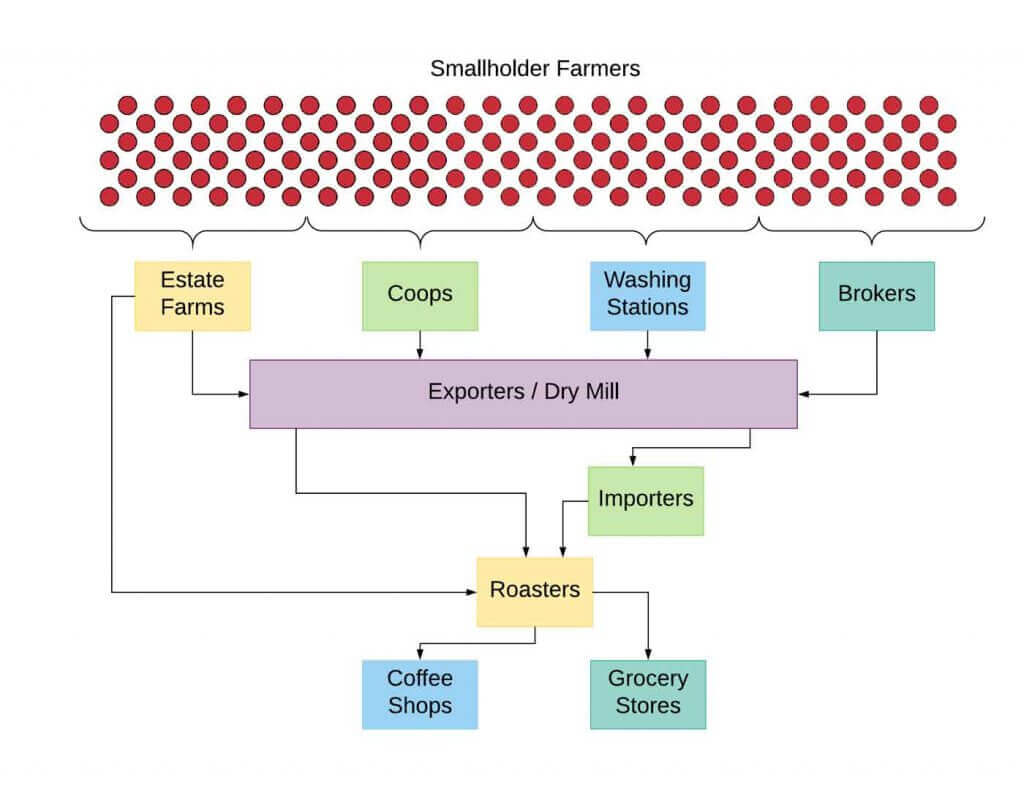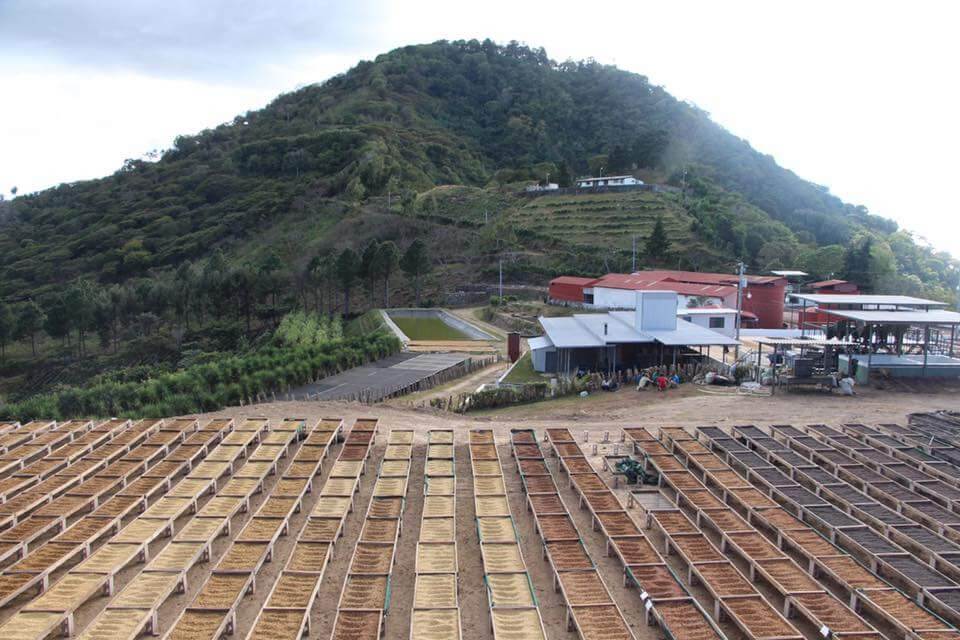What is the best coffee?
“A coffee produced avoiding environment degradation, promoting biodiversity, considering farmers wellbeing and development; embracing the most rigorous quality control standards is definitely the best in the world.”
If you are like me, who like to do coffee shop tours every time I travel, probably have also been blown away by some of the coffee shops around; the furniture, state of the art espresso machine/grinder combo, the elegant staff and the perfect atmosphere; sometimes classic, modern or hipster but always cozy and pleasant. You name it, they are all spectacular and they always deliver by elevating the coffee drinking experiencing from the mundane to the sublime.
Nevertheless, at the same time I cannot stop wondering whether the people who visit these establishments regularly have any notion of how humble the origin of some of these coffees are, and how challenging was for farmers to reach a spotlight into a major coffee shop.
SEE ALSO: How could we deal with child labor at coffee farms?
Despite, all the romantic pictures or marketing logos you have witnessed at coffee shops or coffee bags, who depict humble farmers, with callused hands and tanned wrinkled faces, carrying coffee bags on their heads or helped by donkeys; it is important to clarify that some of them could be extremely wealthy. Fortune that’s usually proportional to the extent of land they possess. These farmers are usually called “Estate Farms” or “Estate Farmers”, constituting 20% of all coffee farmers, and contributing with around 30% of all coffee produced in the world; some of them are so big, that a single farm could easily surpasses the whole yearly coffee production of an entire country. “Estate Farmers” are common at all major coffee producing regions; although are predominately located in Brazil. There, farmers have the fortune to own their land; a benefit that comes in handy when applying for loans and other financial tools that require a collateral. They also enjoy easy access to technology, certification, fertilizers and inputs. Come as no surprise, Brazilian coffee farmers enjoy the highest production yields for Arabica coffee (1.5 TON/HA average) and the highest revenue in the world, reaching as much as 90% of the exports price or FOB.
Unfortunately, wealthy farmers are not the rule, but the exception in the world’s coffee economy, 80% of them or 25 million grow coffee in areas smaller than 5 HA, and produce less than 5 bags (300Kg) of coffee per season. These farmers are the so-called “Smallholder Coffee Farmers”.
Frequently, they don’t have ownership over the land, and financial tools like bank accounts or loans are not available to them, as well as technology, fertilizers, communication or/and basic services; therefore, coffee trees are not regularly managed or fertilized and yields are extremely low. They also must alternate coffee trees with other crops in order to secure income during the offseason and due to the small scale, they do not have direct access to local or global markets, and end up selling most of their coffee as raw coffee fruit to washing stations, estate farms or brokers; losing the coffee ownership and any possibility to profit out of the value added resulting from processing it; at the end, their final revenue oscillates between 30%-60% of the exports price or FOB.


Although, smallholder farmers are the poorest and most vulnerable link in the coffee value chain, all of them grouped together represent the largest contributor of coffee to the global industry, with 70% share of the total. Washing stations, brokers and even estate farms depend on smallholder farmer’s coffee to operate. Surprisingly, a 100 billion coffee industry depend on people who barely make $2 USD/day.
SEE ALSO: Are coffee farmers ready for the 21st century challenge?
Finding a way to help smallholder farmers is not just morally correct, it is essential for the future of the entire coffee industry.
Obviously, there isn’t a single solution, the problem requires a holistic approach, and despite none of us could buy coffee directly from smallholder farmers due to intricacies of the value chain; we all as consumers could make a huge difference by only changing our habits and coffee preferences.
If you want to help the poorest coffee farmers in the world you should do the following:
- Always ask questions about the coffee you buy, if it is not shown in the package or you are just getting a quick cup of Joe, ask the baristas, they often love to talk about it. Things like country, coffee region, farmer’s name are key; full traceability is essential for the decomodization of coffee. It provides visibility, marketing and credit to the producing farmer. By the way, Switzerland, Italy or any European country are not valid answers. Coffee simply doesn’t grow there.
- Favor coffees coming from cooperatives; all cooperatives in the world are composed by organized smallholder farmers who have agreed to work together for the sole purpose of reaching better markets by gaining relevance through aggregation of larger volumes of coffee and sharing the costs. Most smallholder farmers in the world are not currently organized. Individually they are weak and irrelevant for the market, together they have a chance to compete at a global scale. Every time we buy coffee from a cooperative, we are incentivizing smallholder farmers to organize.
- Prefer always sundried natural processed coffees to washed ones. Washed coffees require expensive technology and infrastructure in order to contain water pollution and waste. Most smallholder farmers cannot afford either. Consequently, encouraging large scale production of washed coffees at smallholder farmer communities only aggravates water security to already vulnerable people.
- Support Specialty Coffee, coffee quality allows farmers to become more competitive and add extra value to their coffee by using their talent and skill set rather than volume to profit. It also facilitates relationships with roasters and exporters and provides a better and more reliable price option than the volatile market price.
- Always avoid “Fair Trade” certified coffees; respectable sources (full studies by clicking the links below), have confirmed through long term research that “Fair Trade” does not help world’s poorest coffee farmers, some of the papers even suggest the opposite. Save your money and spend it in something that actually have a constructive impact in smallholder coffee farmers lives, like full traceability or high quality grade/specialty coffee.
http://gps.ucsd.edu/_files/faculty/mcintosh/mcintosh_research_fair.pdf
ftp://ftp.repec.org/opt/ReDIF/RePEc/rau/rseijr/SP15/RSEI-SP15-A1.pdf
http://worldgrowth.org/site/wp-content/uploads/2013/02/WG_FT_2013_FINAL_corrected.pdf
http://repec.graduateinstitute.ch/pdfs/Working_papers/HEIWP06-2007.pdf
